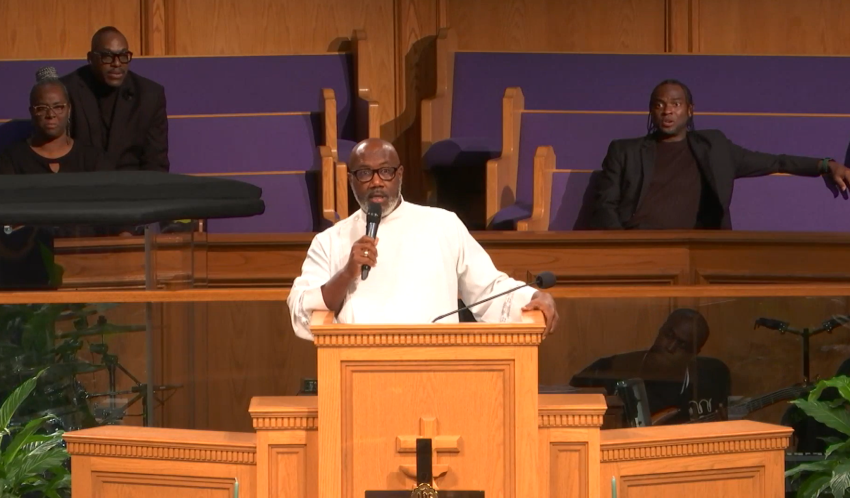Parents outraged pastor lashed children for misbehaving at church school

A Florida pastor who allegedly lashed students for misbehaving at a private school run by his church is coming under fire from some parents who believe he should be arrested for using old-school disciplinary measures on the decline in the United States.
Terence Gray, the senior pastor of Saint Mark AME Orlando, which runs the Alpha Learning Academy, allegedly walked into a fourth-grade classroom last Thursday afternoon and demanded to know which students were misbehaving, WFTV reported.
"He said that he was going to whip us with a belt because we'd been bad," student Shane Walker told the news outlet.
Gray allegedly asked misbehaving students to stand in the class to avoid stricter punishment. The teacher also pointed out others that needed to be punished, and only a few students from the class were allegedly exempted from three lashes each from Gray's belt.
Walker's mother, Janesha Martin, told WFTV that he suffered bruises on his upper leg from the lashes. She wasn't happy about it.
"This makes me really emotional," she explained. "I don't send my child to school to be abused by anyone."
She said she never consented to corporal punishment for her son when she decided to send him to the school. She has removed him since the lashing.
"The pastor should have been arrested last night," she said.
Although most states prohibit the use of corporal punishment in schools, Florida is among nearly two dozen states where the use of corporal punishment in schools remains legal or is not expressly banned. Orlando police told WFTV that investigators are looking into the allegations against Gray.
Another parent, Kinshasa Felix, said her daughter got lashes for allegedly drawing pictures of children and passing them around the class.
"What makes a man to want to whip a kid like that?" she asked.
When contacted for comment by The Christian Post on Monday, a representative for Saint Mark AME Orlando said they would forward questions about the allegations to the church's attorneys.
The Civil Rights Data Collection office of the U.S. Department of Education Office of Civil Rights defines corporal punishment as "paddling, spanking, or other forms of physical punishment imposed on a child."
In a letter to governors, chief state school officers, school districts and school leaders advocating against corporal punishment earlier this year, U.S. Secretary of Education Miguel Cardona urged them "to move swiftly toward condemning and eliminating it."
He argued, citing academic research, that "Corporal punishment can lead to serious physical pain and injury."
"It is also associated with higher rates of mental health issues, including mood, anxiety, and other personality disorders; drug and alcohol use disorders; higher rates of aggression, antisocial behavior, and other externalizing problems; and lower cognitive ability relating to verbal capacity, brain development, and academic achievement," Cardona wrote.
The secretary noted that some 23 states allow corporal punishment in schools or have not explicitly prohibited the practice. A majority of states and the District of Columbia have banned the practice in public schools.
Corporal punishment is legal in Alabama, Arkansas, Arizona, Florida, Georgia, Idaho, Kentucky, Louisiana, Mississippi, Missouri, North Carolina, Oklahoma, South Carolina, Tennessee, Texas and Wyoming. It cannot be used, however, for students with disabilities in Kentucky, Louisiana, Mississippi, Oklahoma and Tennessee.
Other states, according to the Department of Education, that do not expressly prohibit corporal punishment in schools are Colorado (prohibits only for students with disabilities), Connecticut, Kansas, Indiana, Maine, New Hampshire and South Dakota.
Contact: leonardo.blair@christianpost.com Follow Leonardo Blair on Twitter: @leoblair Follow Leonardo Blair on Facebook: LeoBlairChristianPost



























